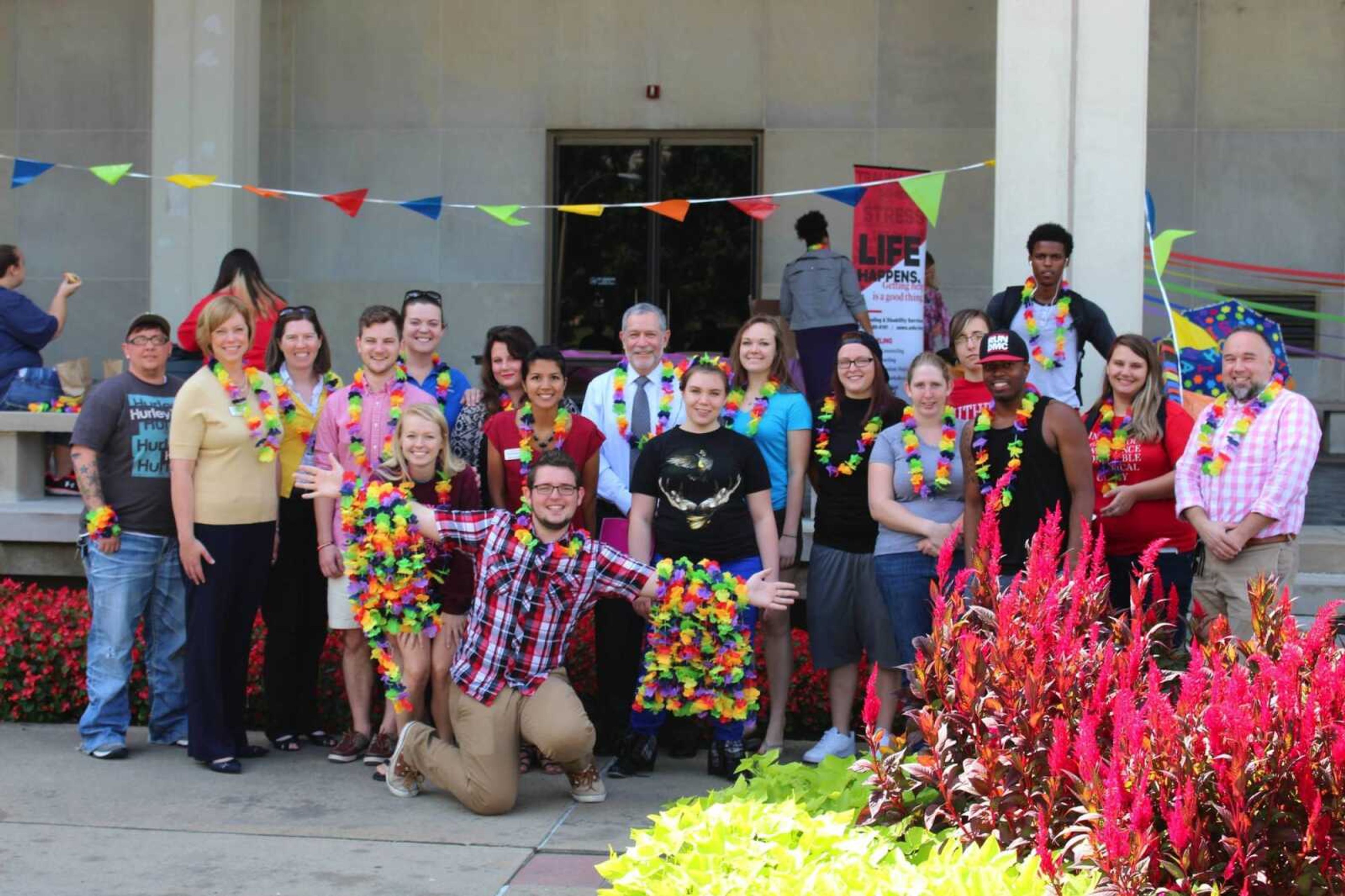The LGBT Resource Center opened on Southeast Missouri State University's campus just last year, but in that year, the center has grown substantially and that has much to do with the peer mentors.
"I really appreciate the peer mentors because they are that, peer mentors," Megan Murray, the coordinator for leadership and development, said. "They are undergraduate students who either identify somewhere on the LGBT spectrum or as straight supportive allies, so I think it's really important to have them in the office because sometimes people don't want to talk to an old straight person, they'd rather talk to someone who knows what that experience is like."
Lauran Belling, Brooke Flesch, Laura Kaimann, Eric Mahnken and Ryan Rhodes are the Southeast students who serve as peer mentors.
"We just connect students to resources that may be beneficial to them," Rhodes said. "Whether it's scholarships, or maybe if they need to go to counseling but want to vent to us, we're not really trained in counseling. We're also there to connect them to different organizations that are LGBT specific. We do programming, like the LGBT barbecue, and a lot of events coming up in October for LGBT history month."
One of the biggest services the peer mentors are in charge of is presenting "LGBT 101" to student organizations.
Rhodes gave the presentation the resident assistants on campus during their training in August; he and the other mentors already have other organizations lined up for future presentations.
"LGBT 101 is like a boiled down, condensed version of Safe Zone," Rhodes said. "Safe Zone is the full training of sensitivity on different terms, on how to avoid microaggressions, terms and definitions, stereotypes, stuff like that. So the LGBT 101 though, any student organization who is interested can contact the resource center or Megan Murray and we'll come to their student organization and just give them the basic information of what LGBT students may go through, what LGBT even stands for and how to avoid saying things that may be offensive, and even how to be there for someone who may be struggling and it's completely free."
Most of the peer mentors have been in the office since it opened last year and have played a role in growing and developing it's resources.
"Starting off, there was a big issue with, we didn't really have many resources starting off," Mahnken said. "SEMO just kind of gave us the office then we had to build from the ground up. So it's been great to see us gather more resources, information; more students now know where we are. We are kind of in a hard to find place, but just kind of being recognized as an actual office on campus has probably been the biggest development. Faculty really started to recognize who we are, and that we really are a necessity here on campus."
The physical office, located in room 408 of the University Center, has seen improvements as well.
"We started with nothing in there and now we have a mini fridge with snacks that [Regina Wareing, past graduate assistant for LGBT programming services] bought and donated," Rhodes said. "We have books that professors donated, I donated a book, we've got a social media page on Facebook that started off with zero and now we've got about 250 likes, which I mean isn't a ton, but it's growing.
I would encourage students to stop in and say 'Hey,' see what we're about, see what we have for them. I really hope that in a few years we can get a bigger space and like it could be a hangout area for LGBT students."
Murray said it's important that everyone knows anyone can come in and talk to the peer mentors in the center and one doesn't have to be LGBT to come in and get information.
"I wouldn't want people to think that you have to be LGBT to go to the peer mentors, or go to the center," Murray said. "Anybody that wants to be an ally, or to help or to be supportive, we're happy to have them, too."






